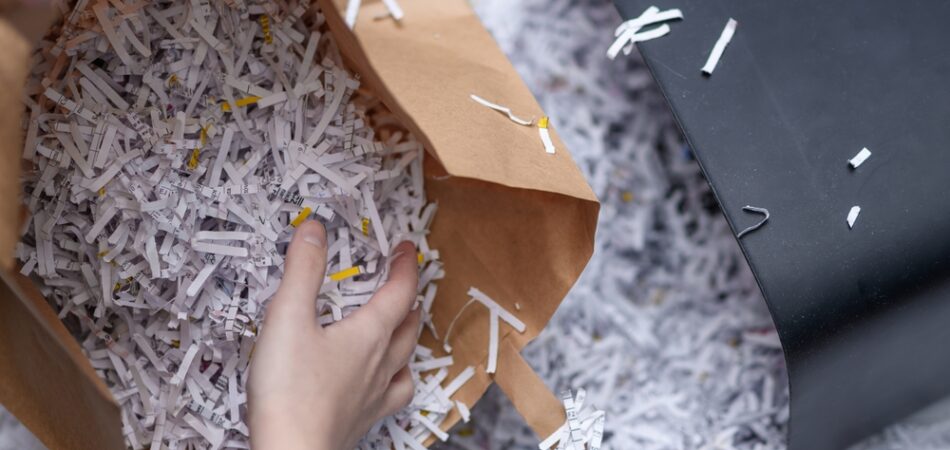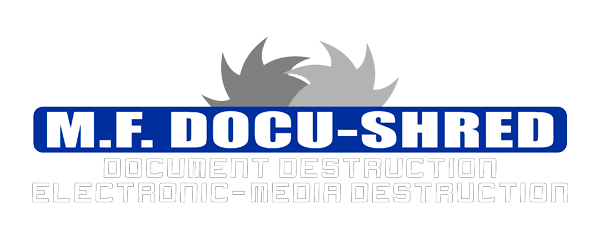
Document shredding is a critical aspect of information security, especially in the digital age where identity theft, corporate espionage, and data breaches are persistent threats. Businesses and individuals alike need to understand the legal landscape that governs the destruction of sensitive documents. In the state of Kansas, several laws and regulations determine how, when, and what must be shredded to ensure compliance. This article dives deep into the shredding legal requirements and document destruction regulations in Kansas, helping organizations safeguard themselves from legal repercussions and data misuse.
The Importance of Document Shredding in Kansas
Document shredding laws exist to protect personal, financial, medical, and proprietary business information. In Kansas, as in other states, these laws align with broader federal statutes such as the Fair and Accurate Credit Transactions Act (FACTA), the Health Insurance Portability and Accountability Act (HIPAA), and the Gramm-Leach-Bliley Act (GLBA). While federal laws provide a foundational framework, Kansas complements these statutes with state-specific shredding legal requirements aimed at further strengthening data protection measures.
Kansas businesses must destroy documents containing sensitive information in a way that renders the data unreadable and irretrievable. This is particularly vital for industries such as healthcare, finance, education, and legal services. For instance, healthcare providers must ensure medical records are destroyed in accordance with HIPAA standards, while financial institutions must comply with GLBA and Kansas-specific banking regulations. Failure to comply with these requirements can result in substantial fines, civil penalties, and reputational damage.
Kansas statutes also highlight the need for consistent document destruction practices. Shredding is not just a recommended action; it is often a mandated process for protecting personally identifiable information (PII). Whether it’s customer records, employee files, or internal reports, organizations must implement shredding protocols that meet legal standards.
Federal Laws That Impact Kansas Shredding Laws
Several federal regulations serve as the backbone for document destruction regulations in Kansas. Understanding these laws helps clarify what businesses must do to stay compliant.
FACTA is one of the most influential federal statutes concerning document destruction. It mandates that businesses dispose of consumer information derived from credit reports in a secure manner, including through shredding. Under FACTA’s Disposal Rule, businesses must take reasonable measures to protect against unauthorized access to or use of the information during its disposal.
HIPAA applies to healthcare providers, insurers, and any entity handling protected health information (PHI). It requires these entities to implement safeguards for the destruction of PHI, ensuring that documents are rendered unreadable, indecipherable, and irretrievable. Shredding, pulverizing, or burning documents are among the approved methods.
The GLBA impacts financial institutions and requires them to establish safeguards for handling customer information. When this information is no longer needed, it must be disposed of properly, typically through shredding or other secure destruction methods. Kansas financial institutions must comply with GLBA alongside any state-level banking rules.
These federal laws establish minimum shredding legal requirements that Kansas entities must observe. However, Kansas also incorporates these regulations into its own legislative framework, often with state-specific enhancements.
Kansas-Specific Document Destruction Regulations
While Kansas does not have an overarching state law exclusively governing document shredding, several Kansas statutes and regulatory bodies incorporate shredding laws into broader legal frameworks. These rules often mirror federal standards but also emphasize enforcement at the state level.
For example, Kansas businesses that maintain records containing PII must follow Kansas breach notification laws, which require notification in the event of a data breach. A company that improperly disposes of sensitive records — such as by failing to shred them — could be held liable for any resulting data exposure. Ensuring proper shredding is a proactive measure to mitigate such risks and avoid the legal and financial ramifications of a breach.
Additionally, state agencies in Kansas, including the Kansas Department of Administration and the Kansas State Archives, set guidelines for record retention and disposal, especially for public entities. Government offices must comply with retention schedules and ensure secure destruction methods for records past their mandated lifecycle. Shredding is a frequently prescribed method in these state-issued retention policies.
Educational institutions in Kansas are also subject to Family Educational Rights and Privacy Act (FERPA) and local state guidance on student records. These schools and districts must ensure that records containing sensitive student information are securely shredded when no longer needed.
Furthermore, Kansas law firms must adhere to Kansas Supreme Court Rules concerning client confidentiality and the secure disposal of legal documents. Ethical obligations make shredding an essential practice in the legal field.
Best Practices for Legal Document Shredding in Kansas
To comply with shredding legal requirements in Kansas, organizations should establish and maintain robust document destruction policies. These policies must be well-documented, regularly updated, and strictly enforced across all departments. The following practices are consistent with both federal mandates and Kansas document destruction regulations.
First, businesses should categorize documents based on sensitivity and regulatory requirements. For example, documents containing PII, PHI, or financial information should be marked for secure shredding after their retention period expires. Organizations must know the retention schedule that applies to each document type and comply with both Kansas-specific and federal timelines.
Second, training employees on proper document handling and disposal procedures is essential. Staff must be aware of the legal obligations associated with document shredding and the potential consequences of noncompliance. Regular training sessions, combined with visible signage and reminders, reinforce these standards.
Third, many Kansas organizations choose to partner with professional shredding service providers. These companies offer on-site and off-site shredding solutions that meet legal and industry compliance requirements. It is vital to choose a shredding vendor that provides a Certificate of Destruction and follows chain-of-custody protocols.
Fourth, maintaining written records of destruction activities is a legal safeguard. These records, including destruction logs and vendor certifications, can serve as proof of compliance in the event of an audit or legal dispute.
Lastly, Kansas organizations must ensure that shredding covers both physical and electronic records. Hard drives, USBs, and CDs containing sensitive information should be destroyed using industrial-grade shredders or degaussing equipment, depending on the data storage medium.
Consequences of Noncompliance with Kansas Shredding Laws
Failing to comply with Kansas shredding laws and broader document destruction regulations can lead to serious consequences. Civil penalties, regulatory fines, lawsuits, and criminal charges are all possibilities when sensitive data is not disposed of securely.
Under FACTA, for instance, companies can face penalties of up to $2,500 per violation at the federal level, with additional liabilities from civil suits brought by affected individuals. HIPAA violations related to improper document destruction can lead to fines ranging from $100 to $50,000 per incident, depending on the level of negligence.
In Kansas, data breaches caused by improper disposal can trigger mandatory breach notifications to consumers and state authorities. The resulting damage to an organization’s reputation can be significant, especially in industries where trust and confidentiality are essential.
Furthermore, businesses that fail to securely shred sensitive documents may be vulnerable to class action lawsuits. For example, a Kansas-based company that discarded customer files in an unsecured dumpster could face legal claims from hundreds or thousands of impacted individuals.
In some instances, criminal charges could be filed, especially if the failure to shred documents resulted in identity theft or fraud. Kansas law enforcement agencies may become involved if negligence is determined to be willful or particularly harmful.
To avoid these risks, Kansas businesses must take shredding legal requirements seriously and build a culture of compliance. Whether through internal procedures or external vendors, secure document destruction is not optional — it is a legal necessity.
Conclusion
Understanding the legal requirements for document shredding in Kansas is essential for any organization handling sensitive information. By aligning with both federal mandates and Kansas-specific regulations, businesses can ensure their shredding practices meet legal expectations. Secure shredding not only protects customers and employees but also shields organizations from legal liability and reputational damage. In an era where data security is paramount, following Kansas shredding laws is both a compliance obligation and a best business practice.
If your business or household in Southwest Kansas or the Oklahoma Panhandle is looking to stay compliant and protect sensitive data, we’re here to help. At M.F. Docu-Shred, we make secure document and digital media destruction simple, reliable, and fully compliant with state and federal laws. Whether you need regularly scheduled shredding, a one-time purge, or secure destruction of old hard drives and storage devices, our team is ready to serve you with professionalism and discretion. Reach out to us today and let’s discuss the right solution to safeguard your information and give you peace of mind.

